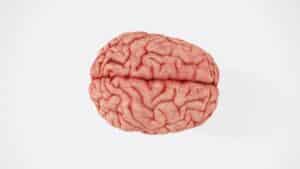
As we age, maintaining mental sharpness becomes crucial for enjoying a high quality of life. Engaging in activities that challenge the brain, staying physically active, and fostering social connections are key strategies to keep the mind agile.
Here are some top tips to help those over 60 stay mentally sharp:
Stay Physically Active
Physical exercise is not only good for your body but also your brain. Regular physical activity increases blood flow to the brain and promotes the growth of new brain cells. Activities such as walking, swimming, yoga, and dancing can improve cognitive function and delay the onset of dementia.
Tip: Aim for at least 30 minutes of moderate exercise most days of the week. Even simple activities like gardening or walking the dog can be beneficial.
Engage in Lifelong Learning
Continuing to learn new things keeps the brain engaged and builds cognitive reserves. Taking up new hobbies, learning a new language, playing a musical instrument, or attending adult education classes can all stimulate the brain.
Tip: Sign up for a class at your local community centre or online.
Stay Mentally Active
Keep your brain engaged with activities that require mental effort. Reading books, writing, and engaging in stimulating conversations can help maintain cognitive function.
Tip: Join a book club, start a journal, or engage in discussions on topics that interest you.
Maintain a Social Network
Social interactions are vital for mental health. Regularly connecting with friends, family, and community groups can help prevent feelings of loneliness and depression, which are linked to cognitive decline.
Tip: Make an effort to stay in touch with loved ones, join clubs or groups that interest you, or volunteer in your community.
Eat a Brain-Healthy Diet
A balanced diet rich in antioxidants, healthy fats, vitamins, and minerals can support brain health. Foods such as berries, nuts, leafy greens, fish, and whole grains have been shown to improve cognitive function.
Tip: Consider incorporating foods from the Mediterranean diet into your meals. This diet emphasises fruits, vegetables, fish, and healthy fats.
Get Adequate Sleep
Quality sleep is essential for brain health. It allows the brain to repair itself and consolidate memories. Poor sleep is linked to cognitive decline and an increased risk of Alzheimer’s disease.
Tip: Aim for 7-9 hours of sleep per night. Establish a regular sleep routine, create a comfortable sleep environment, and avoid caffeine and electronics before bedtime.
Manage Stress
Chronic stress can negatively affect the brain, impairing memory and cognitive function. Techniques such as meditation, mindfulness, and deep-breathing exercises can help manage stress levels.
Tip: Practice relaxation techniques daily. Even a few minutes of meditation or deep breathing can make a difference.
Challenge Your Brain with Puzzles and Games
Puzzles, crosswords, Sudoku, and brain-training apps can keep your mind sharp by challenging your memory, problem-solving skills, and concentration.
Tip: Dedicate a few minutes each day to solving puzzles or playing brain games. There are many apps available that offer daily challenges.
Regular Health Check-ups
Regular visits to the doctor can help manage chronic conditions that might affect cognitive health, such as diabetes, high blood pressure, and high cholesterol. Early detection and management of these conditions are crucial.
Tip: Keep up with regular health screenings and follow your doctor’s advice on managing any health issues.
Limit Alcohol and Avoid Smoking
Excessive alcohol consumption and smoking can have detrimental effects on the brain. Reducing alcohol intake and quitting smoking can improve overall health and cognitive function.
Tip: If you drink, do so in moderation. Seek support if you need help quitting smoking.
Staying mentally sharp after 60 involves a combination of physical activity, mental stimulation, social engagement, and healthy lifestyle choices.
By incorporating these tips into your daily routine, you can support your cognitive health and enjoy a fulfilling, active life well into your later years. Remember, it’s never too late to start taking steps towards better brain health.
(Article source: Silver Surfers)

